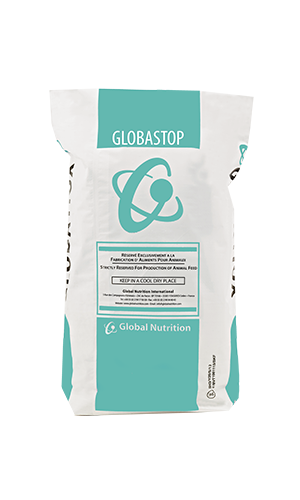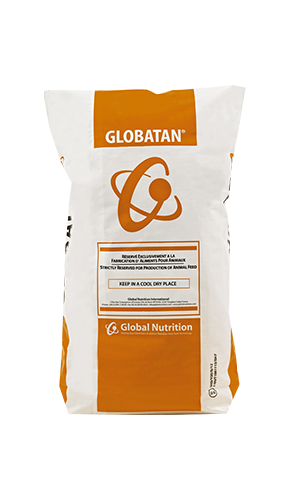Swine
A well-balanced diet is essential to meet the specific nutritional needs of swine at different stages of their life cycle. The typical diet for pigs consists of a mixture of grains, protein sources, vitamins, minerals, and additives. Nutritional programs may vary depending on the pig’s age, weight, and production purpose (e.g., breeding or finishing).
Water availability is also crucial, as pigs need access to clean and fresh water to maintain hydration, aid digestion, and regulate body temperature. Proper swine nutrition management is essential for maximizing growth rates, feed efficiency, and overall herd health while ensuring the welfare and productivity of the pigs.
Better digestion
Better litter quality
Improve gut health
Better digestion
Better digestion helps in the efficient absorption of nutrients, leading to improved growth rates and weight gain. Animals with optimal digestion require less feed to meet their nutritional needs, reducing production costs and promoting sustainability. Healthy digestion minimizes the occurrence of digestive disorders, resulting in reduced stress and improved overall well-being. Ultimately enhancing productivity and the environmental impact of farming practices.
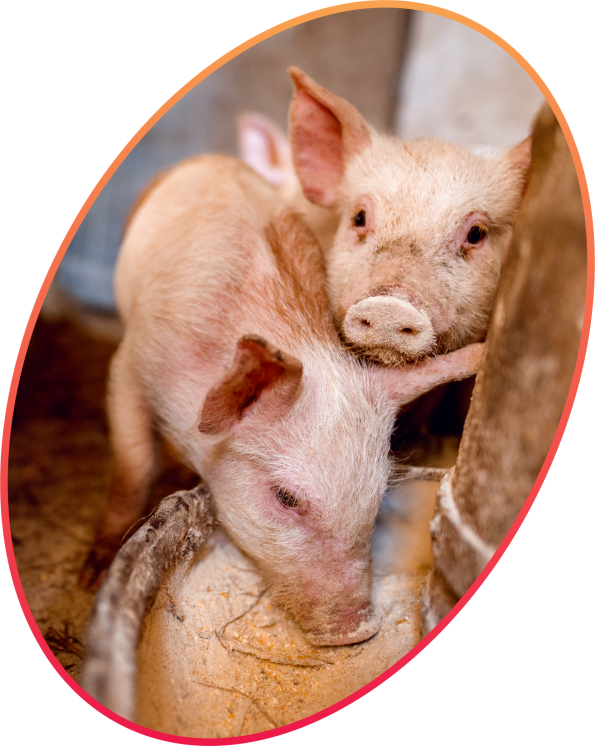
Better litter quality

Improve gut health
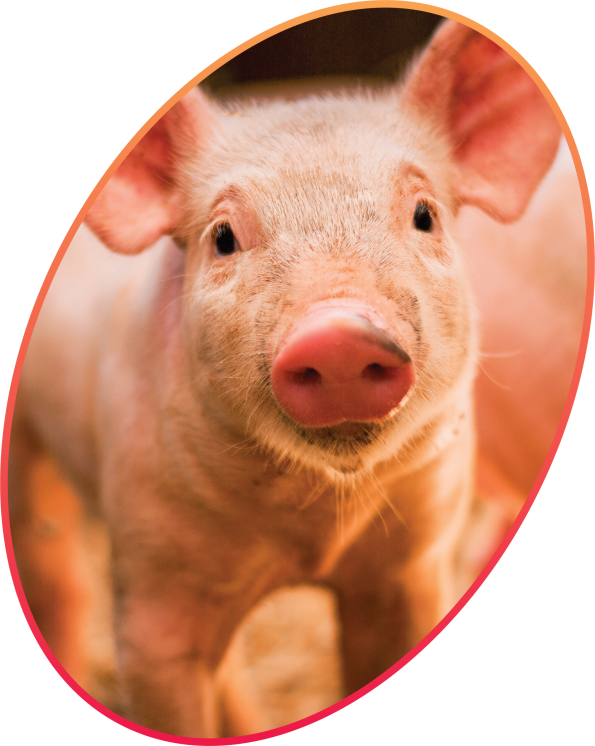
Recommended Products
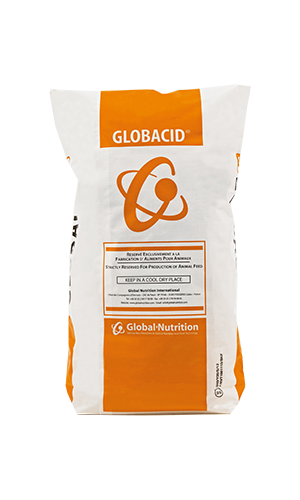
GLOBACID OPCL is designed to amend a piglet's inability to produce sufficient HCL, the high acid binding capacity of piglet feeds, and pathogenic bacteria contaminations, resulting in less diarrhea.
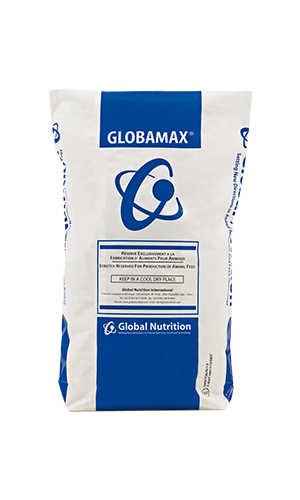
GLOBAMAX B700 is a protected, highly concentrated calcium butyrate feed supplement. It is designed to ensure and maximize the beneficial effects of calcium butyrate in the intestine, leading to optimal gut health.

